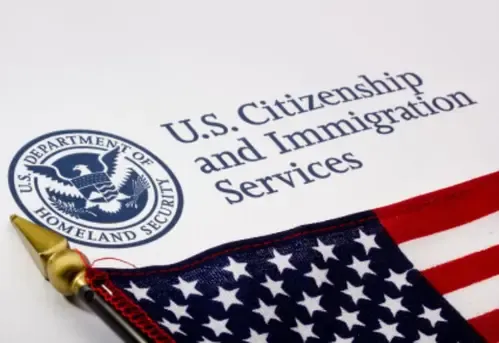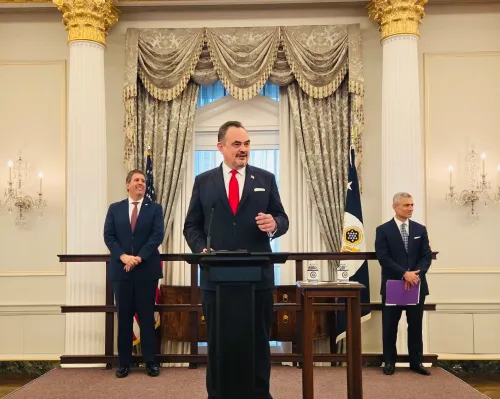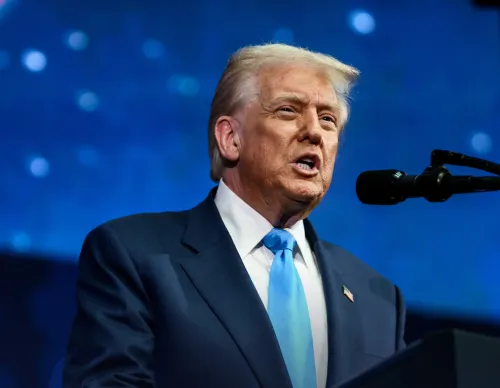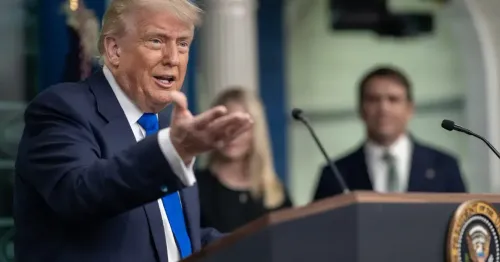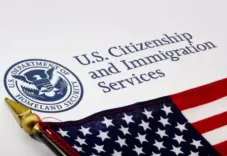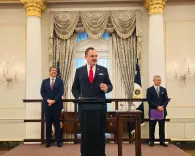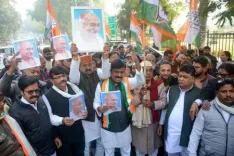Why is a Baloch Human Rights Activist Praising India's Stand Against Pakistan-Backed Terrorism?
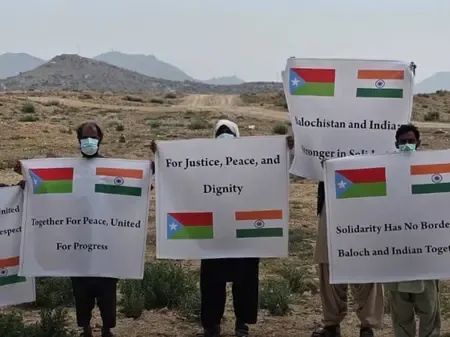
Synopsis
Key Takeaways
- Mir Yar Baloch addresses Lok Sabha Speaker Om Birla.
- Commends India's stance against Pakistan-sponsored terrorism.
- Calls for recognition of the Baloch people's plight.
- Highlights strategic partnerships between Balochistan and India.
- Emphasizes the cultural significance of Hinglaj Mata Mandir.
Quetta, July 28 (NationPress) Notable Baloch human rights advocate Mir Yar Baloch on Monday addressed a letter to Lok Sabha Speaker Om Birla, praising the solidarity of the Indian populace and the government's unwavering position against cross-border terrorism sponsored by Pakistan.
This correspondence precedes the parliamentary debate concerning Operation Sindoor, set for later today.
In his letter, Baloch expressed, "As representatives of the sixty million Baloch individuals of the Republic of Balochistan, we convey our heartfelt greetings to our 1.4 billion Indian brethren. During today's parliamentary discussions on Operation Sindoor, we wish to emphasize our deep respect for the steadfast unity of the Indian people, the principled stance of the Government of India against state-sponsored terrorism from Pakistan, and the visionary choice of the opposition to unite with the government and armed forces at this pivotal moment."
Mir Yar Baloch further lauded the remarkable bravery and professionalism displayed by the Indian Armed Forces, the "responsible and patriotic role" of the Indian media, and the nation’s collective achievement in confronting and defeating "Pakistan's military and psychological aggression."
Highlighting the "enduring ties of friendship between India and Balochistan," the human rights activist called for acknowledgment of the "invaluable historical relationship" within the Indian Parliament.
"This sentiment not only reflects our shared history but resonates with the aspirations and convictions of the Indian populace," the letter noted.
Mir Yar Baloch pointed out that following a temporary halt in Operation Sindoor, "Pakistan's occupying forces have unleashed a fresh wave of brutality" upon the Baloch people.
The letter asserted that these violent actions by Pakistani forces are a "direct retaliation" against the Baloch people's principled support for India.
"Our correspondence serves as a powerful reminder of India's commitment to defending the oppressed and resisting tyranny in our vicinity. The Baloch people have consistently looked towards India as a symbol of hope, and their steadfast backing for our sovereignty, especially during events like Operation Sindoor, merits a principled response from your leadership," emphasized the human rights activist.
He elaborated on various strategies where Balochistan could assist India, such as terminating Pakistan's access to the Arabian Sea via Gwadar and disrupting the China-Pakistan Economic Corridor (CPEC), which he referred to as "a direct threat to India's sovereignty and security."
The letter also highlighted that Balochistan is resource-rich and could provide India with direct trade routes to Central Asia, the Middle East, and Europe through an independent corridor.
Referencing Balochistan's sacred Hinglaj Mata Mandir, one of the 51 Shakti Peethas and a highly revered Hindu pilgrimage site, the human rights leader stated, "The Baloch people have safeguarded it against Pakistani attempts to radicalize the region, exemplifying their commitment to pluralism and cultural respect."
He reiterated that the Baloch oppose the same terrorist factions that target India.
In his letter, Mir Yar Baloch recounted the history of Balochistan, underscoring its transition from an independent nation in 1947 to its "forcible annexation" by Pakistan in 1948.
He articulated that since then, the Baloch population has endured significant suffering, including mass abductions, extrajudicial killings, aerial bombardments, and systemic cultural oppression. However, he affirmed that the people remain committed to secular, democratic, and nationalist principles.
Balochistan aspires "not only for freedom from oppression but also for a future characterized by peace, equality, and cooperation with democratic neighbors, primarily India," the human rights activist conveyed.
Emphasizing India's principle of 'Vasudhaiva Kutumbakam' (the world is one family), the human rights defender urged Speaker Om Birla to bring this matter to light during the Parliamentary session on Monday, advocating for the freedom and dignity of the Baloch people.


